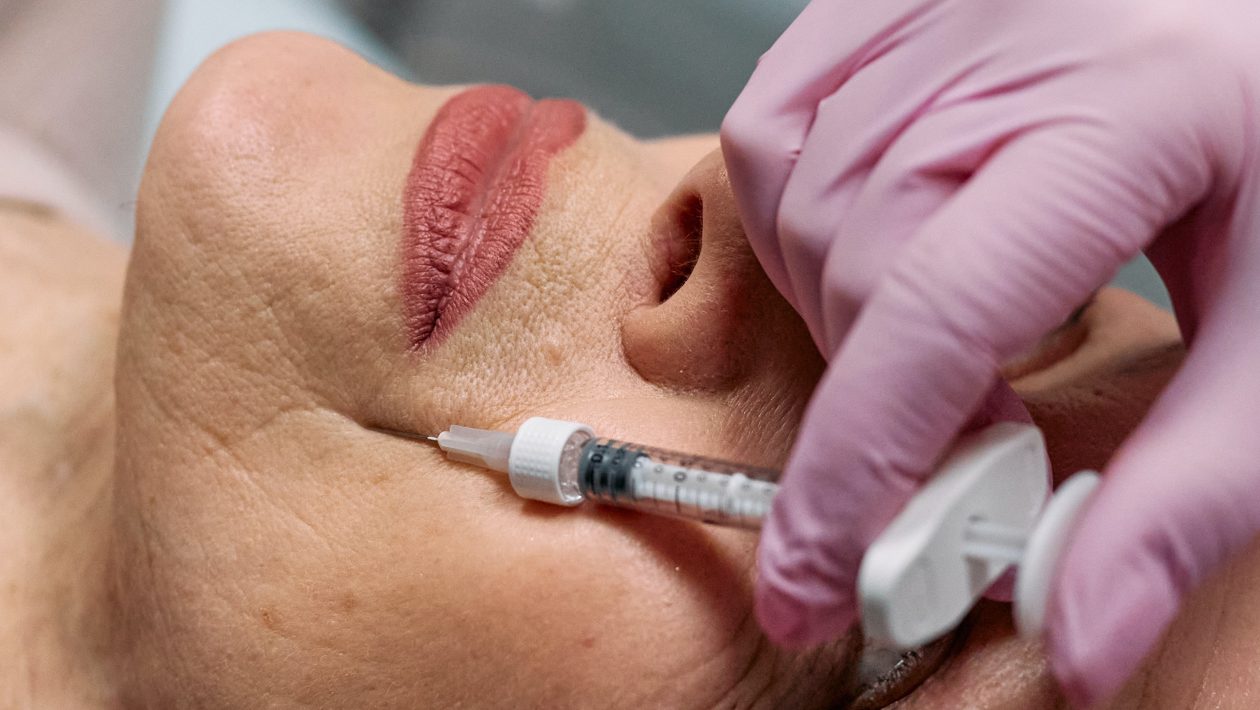While skin whitening is the first thing that comes to mind when you consider the word ‘gluta,’ this is simply a secondary effect of its purifying activity. This article discusses the antioxidant glutathione, its benefits, and its usage. This makes it a great option for those who are continuously stressed and want to regain their shine. Additionally, it discusses what to avoid when taking glutathione.
Table of Contents
What is glutathione?
Glutathione is a tripeptide antioxidant composed of three amino acids (cysteine, glycine, and glutamate). It is the most prevalent and significant antioxidant in the body. Our liver created this naturally and helps body detoxify. Though supplementation is not necessary, you might want it for your body goals.
Maintaining a balance between antioxidants and free radicals in the body is critical for proper physiological functioning. GSH is a chemical that aids in the maintenance of such balance.
Your body needs this antioxidant as it:
- reverses aging process
- creates metabolism for cancer-causing chemicals
- naturally repairs DNA
- make proteins
- activates enzymes
- balances immunological response
- keeps memory intact
How to get Glutathione?
Gluta products are widely available, for both oral and topical usage. The intravenous dosage you will not find at a regular drugstore. But you might get it online or best clinically acquired.
Beware of buying glutathione products online from illegal dealers because they may be contaminated, useless, and toxic. Similarly, enquire with the cosmetic clinic about the type and dose of gluta drip before you choose a plan.
Avoid glutathione injectable solutions that do not seem authentic. Many clinics might try to sell you in-house products that are not licensed or certified.
Taking an appointment from a reputed cosmetic clinic with reviews and years of expertise is the best foot forward. It refrains you from DIY techniques that can harm you due to incorrect injection techniques.

Best brands of Glutathione
A brand’s popularity might change depending on a location, a person’s preferences, and marketing strategies. Here are a few known brands that provide glutathione supplements:
- Glutathione supplements are available from ThioneMax in a range of forms, including intravenous (IV) injections and oral capsules
- Glutathione Force offers oral sprays and injections for skin whitening that contain glutathione as a dietary supplement
- Glutathione Plus offers skin-lightening injections and oral pills that include glutathione
- Glutax offers glutathione supplements like tablets and injections for skin lightening.
- N-Acetyl Cysteine (NAC) is a dietary supplement that supplies the body with the amino acids required to produce glutathione. It is also used to replenish glutathione.
What to eat when taking glutathione
There is a link between oxidative stress and aging. Studies suggest glutathione deficiency plays a role in this. When participants in a study consumed supplements containing cysteine and glycine, their levels of glutathione rose.
Glutathione is poorly absorbed and broken down in the gastrointestinal tract. You can overcome this barrier by ingesting glutathione’s precursor amino acids or by injecting glutathione.
The best sources of amino acids are animal proteins like chicken, beef, poultry, and eggs. The primary sources of glutathione are fruits and vegetables.
L-cysteine
The body makes cysteine from the essential amino acid methionine. Methionine and cysteine must be supplied from diet or supplementation because they are not stored in the body. Methionine is present in a wide variety of foods, although it is notably abundant in eggs, fish, dairy products, and meats.
Glycine
Serotonin, collagen, and glutathione are all produced by the synthesis of glycine. The amino acid glycine can be made by the body and is present in a wide variety of cheeses, cereals, dairy goods, nuts, seeds, turkey, chicken, pig, and red meats.
L-glutamate
Your body can manufacture glutamate, and you can also consume it through food. Glutamate can be found in cheese, sauces, flavorings, nuts, processed meats, fruits, vegetables, and shellfish.

What to avoid when taking glutathione
Strong antioxidant glutathione is created naturally by the body to shield cells from oxidative damage and support the immune system. It aids a number of positive health effects and is also offered as a dietary supplement.
Avoiding the following is crucial when using glutathione supplements:
Alcohol consumption and smoking
Preventing or limiting alcohol use to reasonable levels is preferred to getting the optimum results from glutathione supplementation. When taking glutathione, it is important to abstain from alcohol and tobacco for a number of reasons:
Liver overwork
The liver processes both glutathione and alcohol. Smoking and excessive alcohol consumption can tax the liver. And hence limiting its capacity to absorb glutathione and other vital nutrients.
Alcohol and smoking
Alcohol and smoking are believed to enhance oxidative stress. This leads to the production of dangerous free radicals that can destroy cells and tissues.
Alcohol can reduce glutathione’s effectiveness because preventing oxidative stress is one of its main functions as an antioxidant.
Alcohol consumption can contribute to cellular damage, the exact reverse of what glutathione tries to prevent. While drinking or smoking, using glutathione may have the opposite effect on your health.
Caffeine is a stimulant
To optimize the benefits of glutathione supplementation, avoid or consume caffeine with caution. Caffeine should be avoided while taking glutathione for the following reasons:
- Caffeine consumption has been demonstrated to lower glutathione levels in the body, reducing its antioxidant qualities and jeopardizing cellular safety against oxidative stress
- Caffeine can interfere with the absorption of vitamins, including glutathione 6, potentially reducing its bioavailability and usefulness
- Excessive caffeine use can cause a variety of health problems including increased heart rate, anxiety, tension, and interrupted sleep patterns, which may negate the beneficial effects of glutathione
Specific Medications
Certain drugs can deplete or interact with glutathione, potentially reducing its effectiveness. Consider the following crucial points:
Medication Interactions: Certain medications may interact with glutathione supplements, reducing their effectiveness or increasing the risk of negative effects. Before taking glutathione with other medications, it is critical to check with a healthcare expert.
Immune Modulating drugs
Glutathione’s role in immune system support may interact with drugs that also influence immunological response. To address potential interactions, proper counselling from a healthcare expert is required.
Fried and processed foods
It is important to avoid processed and fried foods when taking glutathione for the following reasons:
Reduced Nutrient Content
Processed and fried foods are frequently deficient in critical vitamins and antioxidants that aid glutathione activity and synthesis. A diet high in whole foods provides the required building blocks for optimal glutathione levels.
Harmful Additives
Processed products may contain harmful components, preservatives, and chemical substances that may interfere with glutathione’s antioxidant qualities and general efficacy.
Inflammation
Processed and fried foods can contribute to chronic inflammation, which can harm cellular health and the body’s capacity to make and use glutathione.

Products and Drinks Produced from Milk
When utilizing glutathione, it may be advantageous to abstain from dairy-based dishes and beverages due to several reasons:
Cysteine is an essential component of the amino acids required by our bodies to manufacture glutathione. Casein, which exists in various dairy products, has a potential to hinder cysteine absorption.
Allergies
Few individuals might undergo irritation and subsequent allergic reactions due to ingestion of dairy products. Consistent inflammation brought upon by oxidative stress can hamper glutathione levels alongside its antioxidant effectiveness.
Lactose intolerance
Gastrointestinal discomfort along with nutrient absorption reduction (including amino acids prerequisite for synthesizing glutathione) may arise due to lactose intolerance.

What to avoid when taking glutathione drip
As skin changes with age, the effects of glutathione IV therapy don’t last forever. The effects of glutathione on skin whitening diminish when glutathione levels decline.
If you want to keep the skin-whitening effect, you will glutathione touch-up on a regular basis. After your skin lightens sufficiently, you will require maintenance treatments every few months.
So, what to avoid when taking glutathione IV? You should avoid variables that may increase free radical levels in your body, such as smoking, poor food, alcohol abuse, stress, poor sleep patterns, environmental pollutants, and excessive sun exposure.
Alterations in Lifestyle for Increasing Glutathione Levels
In order to heighten glutathione levels thereby enhancing its efficacy, consider embracing below-mentioned lifestyle recommendations:
- Consume a well-balanced diet featuring grains, vegetables & proteins that are lean. These meals provide crucial minerals, antioxidants together with amino acids instrumental in boosting glutathione synthesis.
- Routine physical activity gives rise to improved glutathione synthesis, fortified antioxidant defenses & augmented blood circulation.
- Employ stress-reducing techniques like deep breathing routines as well as yoga or meditation.
- Make adequate sleep a priority to allow the body to repair and optimize glutathione production.
- Drink enough water to help with detoxification and cellular health.
- Limit your exposure to environmental contaminants that might promote oxidative stress, such as air pollution and hazardous chemicals.
- Some supplements, such as vitamin C, vitamin E, and selenium, can complement and boost glutathione’s antioxidant action.
Glutathione Risks
Amino acid consumption in the body produces glutathione.
Low zinc levels have been linked to long-term glutathione supplementation.
Zinc is required for numerous chemical processes, protein creation, and gene expression regulation.
Zinc is abundant in oysters.
Red meat, poultry, beans, nuts, and dairy products are also high in zinc.
Inhaled glutathione is also available that Asthmatics should avoid consuming. Some individuals may experience cramps, bloating, or allergic reactions from glutathione supplementation. Glutathione supplementation is not safe during pregnancy or breastfeeding.
Final Thoughts
Glutathione has various functions in the body, including antioxidant properties. Low glutathione levels in the body have been linked to a variety of chronic illnesses and disorders. But there is insufficient data to determine whether supplementing glutathione lowers the risk of these illnesses or provides any health benefit.
Glutathione is produced in the body by the breakdown of other amino acids. It’s also in the foods we eat. Before beginning any dietary supplements, consult with your healthcare physician about the benefits and hazards of supplementing.
Go through the aforementioned insights and take proactive efforts to support your body’s natural defenses and unlock glutathione’s full potential for a better and happier existence.
FAQs
1. Why Glutathione works instantly for some and does not for others?
People’s metabolisms and weights vary. As their bodies absorb the components well, some people notice the effects quickly. The amount of dosage taken is a plausible explanation too.
2. What is the recommended dosage for quick results?
To obtain faster results from Glutathione, determine the appropriate dosage based on body weight and skin tone. For 3 to 6 months, the standard dosage is 20-40 mg per kilogram of body weight.
3. What to avoid when taking glutathione tablets?
Do not take antipsychotic and chemotherapy drugs with glutathione tablets. Avoid drinking alcoholic beverages. The presence of alcohol in the stomach is one of the reasons your body does not absorb the whitening pill completely.
4. Can I take glutathione tablets to maintain skin tone?
The tablets should be continued even after acquiring the desired skin tone. As a preventative measure, take 1 pill every day if your surgeon recommends.

